Indigenous People from Ecuador to Louisiana Forge Alliances Against Global Oil Spills
From the backwoods of rural Ecuadorean rainforests to the swamplands of the Louisiana Bayou, indigenous leaders gathered in the Gulf last week to unite in a crusade against global oil spills.
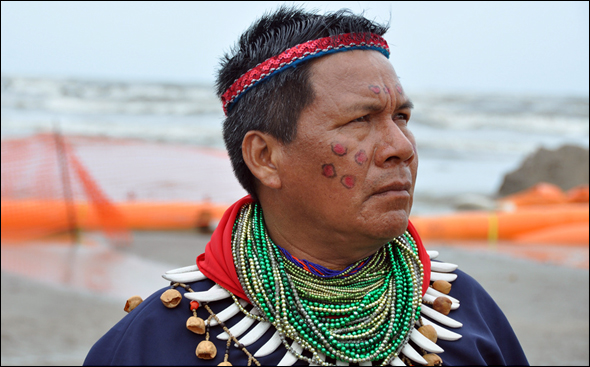
By Aubrey Ann Parker
Circle of Blue
Traveling more than 3500 kilometers from their own oil devastation in the Ecuadorean Amazon, indigenous leaders whose traditional way of life has been devastated spent last week meeting with native tribes in the Gulf of Mexico who’ve been similarly affected by the BP oil spill. They hope to support one another and form an alliance against global oil spills.
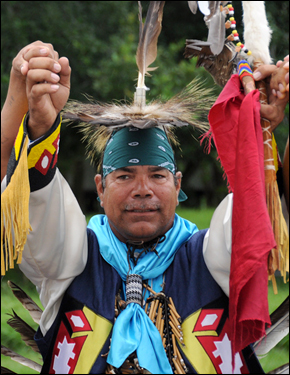
Members of the United Houma Nation—a state-recognized Tribe of 17,000 in the marshland of southeastern Louisiana—are subsistence fishers and trappers, who, in wake of the BP Deepwater Horizon disaster, are facing an uncertain future. In an attempt to learn from others enduring similar battles, the Houma nation hosted a delegation from the Amazon where oil pollution has also severely impacted the waterways.
There are more than 30,000 Ecuadorians who have been waiting 17 years for a decision in the class-action lawsuit filed against Chevron and Texaco. Worth $US27 billion, the case will decide if Chevron is liable for having polluted nearly 5000 square kilometers of the Amazon Rainforest. The indigenous community asserts that 50 years of negligent drilling practices and the creation of nearly a thousand open-air, unlined pits have allowed 19 billion gallons of toxic oilfield waste and 17 million gallons of raw crude oil seep into the ground and streams. These waterways were traditionally used by communities for laundry, cooking, drinking, and bathing.
According to Facing South, the South American delegation included a grandmother whose home is surrounded by oil contamination and whose husband—a Texaco employee—died of cancer; the co-founder of Amazon Defense Front, which filed the class action lawsuit against Chevron; as well as the leader representatives of two of the region’s six indigenous groups.
The Ecuadorean leaders “hope to share their experiences in recovery and protecting health, livelihoods, and culture in the wake of an oil disaster of this magnitude,” according to a press release by Rainforest Action Network and Amazon Watch, two U.S.-based advocacy organizations.
“We hope what we have learned from our own torment at the hands of Chevron will strengthen the resolve of the communities affected by the BP spill,” said Emergildo Criollo, the leader of the Cofan tribe.
The week-long cultural exchange included a boat tour of the affected area and a public community meeting as these two groups bridged their cultural differences through one common denominator: petroleum pollution. In a public forum, that was held last Thursday, the Ecuadorians offered advice for developing long-term recovery plans and for holding polluters accountable.
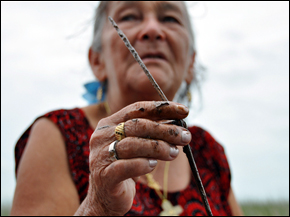
Click image for slideshow.
“We look forward to meeting our brothers and sisters of the Amazon,” Thomas Dardar Jr., Principal Chief of the United Houma Nation, said in a press release. “Sharing ideas and solutions regarding protecting the indigenous way of life when faced with such huge environmental impacts.”
Meanwhile, the Amazon suffered another blow last month when a leaking oil tanker spilled 12,000 gallons into the Maranon River in Peru’s Amazon Basin, according to the Peruvian Times. This latest leak adds to the 30 years of devastation suffered by the Peruvian Achuar indigenous people, including nearly 300 million gallons of toxic wastewater allegedly dumped by Occidental Petroleum, according to the BBC.
In the ongoing litigation, advocacy NGOs like EarthRights International and Amazon Watch have argued that the case should stay in Los Angeles, which is homebase for Occidental Petroleum. Currently in the Ninth Circuit Court of Appeals, the case could be moved to Peru, despite plaintiffs’ complaints that the system is biased against indigenous communities. One year ago, protests in Peru left dozens dead after confrontations with police, according to a recent story by NPR.
The case was originally filed three years ago and, in April 2008, a California judge ruled that the case should be heard in Peru. An appeal decision is expected by the end of this year.
Aubrey Ann Parker is a reporter for Circle of Blue where she specializes in data visualization. Reach her at circleofblue.org/contact.
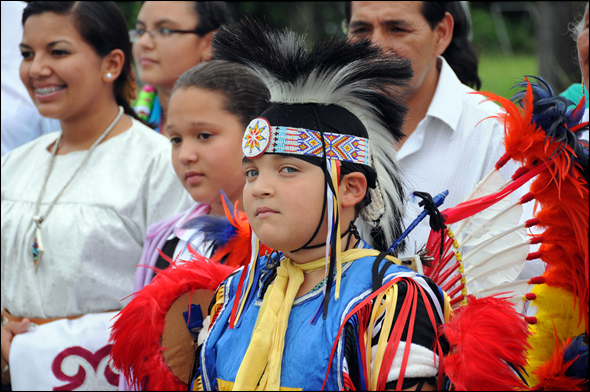
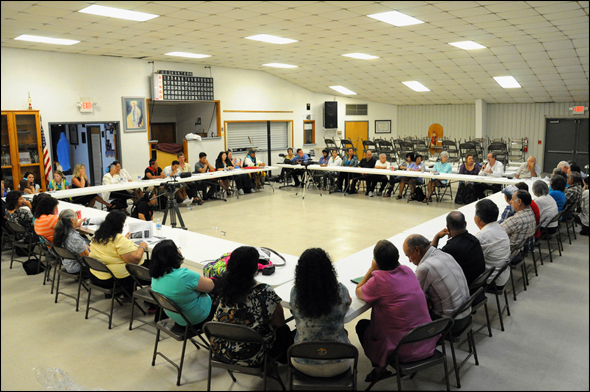

is a Traverse City-based assistant editor for Circle of Blue. She specializes in data visualization.
Interests: Latin America, Social Media, Science, Health, Indigenous Peoples

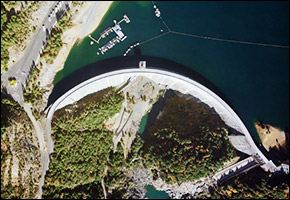
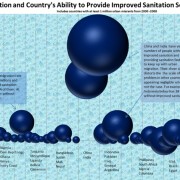
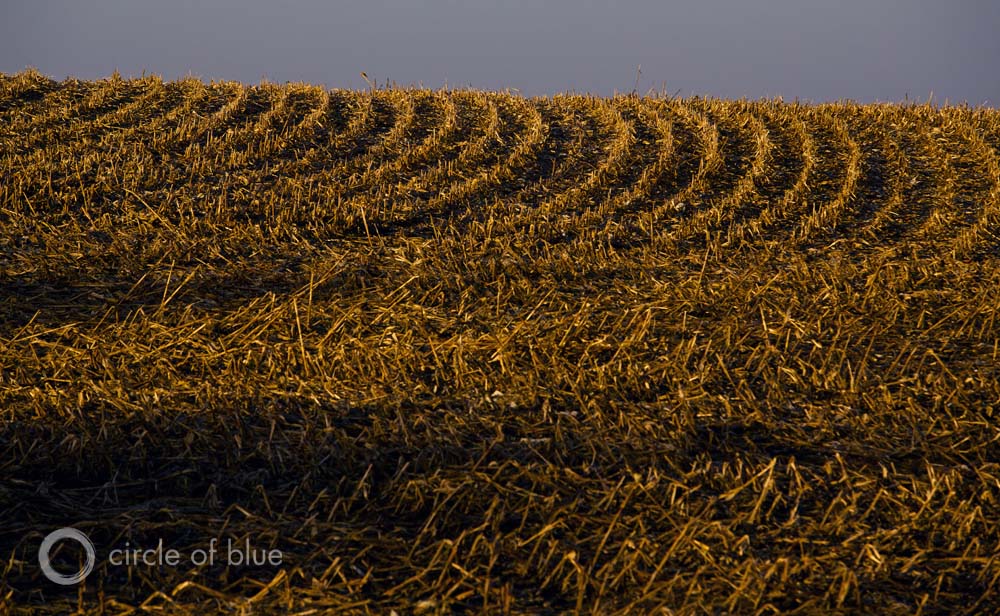
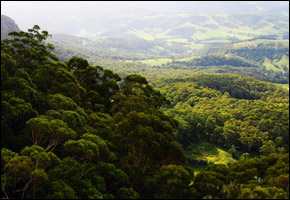
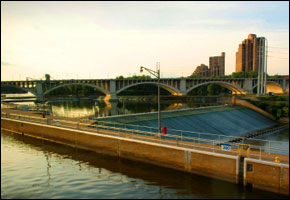


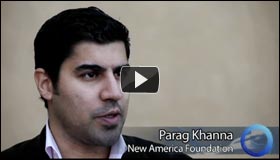
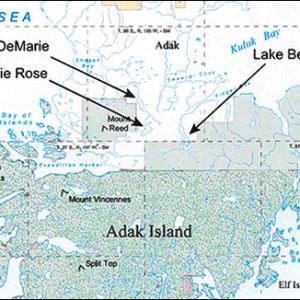
Hello, I have been dancing with a long spear from the rain forest. I carry this with great respect as this came from your home as a gift. I call it Ozaawan, “South,” in my Aishinabe language. I also have a set of blow guns. And a flute. This spear, as I understand, is a weapon for boars and humans that destroy your land. I am a clan Chief, hereditary and real, get involved with protecting Mother Earth. At our pow wow I carry this to let our native peoples aware that the fight continues against aggressive destruction of first peoples of Americas, they call it. Keep moving forward with the Creator’s guidance. Aho Migwetch, thank you, Chief Whitebird Ogema Benshie — Leading Bird
What a powerful and relevant article on oil spill partnerships! I was very impressed by how you managed to connect the experiences of people from Ecuador to Louisiana, showing the global magnitude of this environmental problem. The way you describe the resilience of the affected communities and their struggle to protect their territories is truly inspiring.